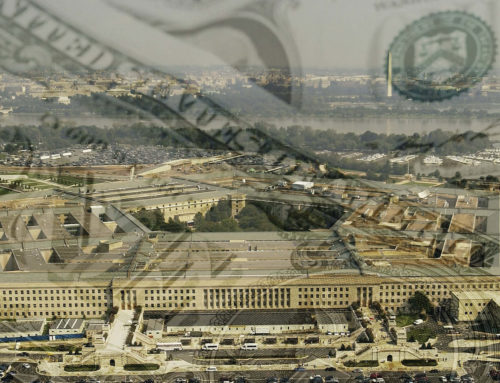Sadly, contractors wasting billions of dollars in Iraq and Afghanistan is no longer news. Now the latest report retelling this fiscal tale of woe warns that our withdrawl from Iraq presents a fresh danger of wasting dollars. In addition to hopefully saving taxpayers money, this moment provides an opportunity to ask policymakers some hard questions about how we want contractors to figure in our future.
The interim report released this week by the Commission on Wartime Contracting in Iraq and Afghanistan details many of the same problems we have heard from the various blue-ribbon panels, Inspectors General, and government auditors that previously investigated the issue. These include contracting officers with too much to watch and not enough training; Commanders who have no idea how many contractors or dollars pass through their bases; and companies that subcontract work without any government oversight.
Though commissioners’ overseas travel revealed some particularly vivid examples of waste—such as a brand-new, $30 million dining facility for Camp Delta built as the existing facility was being renovated—It’s the impending drawdown from Iraq and buildup in Afghanistan that makes the report particularly timely. It also makes the report frightening from a cost and contract management point of view. Much of the transfer of military resources from Iraq to Afghanistan (where the contracting command has yet to set up shop) will have to be done by contractors. These contractors will be responsible for vital decisions such as what equipment to scrap or send back to the States for rehabilitation; how to dispose of U.S. government-owned property; and how to close down military bases.
This heavy load of responsibility raises pivotal accountability issues that transcend the parameters of the commission report. We have handed so much of our government’s operations over to the private sector without accompanying transparency mechanisms that backward-looking audits are bound to be exercises in outrage instead of oversight. Our dependence can make questions about whether contractors are performing “inherently governmental” functions seem quaint. The Defense Department Inspector General reported last month that the global contracting office of Special Operations Command (USSOCOM) allowed contractors to administer task orders on their own contracts, approve overtime and make other decisions legally restricted to government employees on contracts worth $87 million.
So while Congress quibbles over the definition of “inherently governmental” or the correct ratio of contractors to enlisted men, the real question going forward is the one asked Wednesday by the commission’s co- chairman Michael J. Thibault: “What are the options?”
“Do we increase (government staff) so that we have not just the contracting oversight expertise, but folks to do some of these jobs now being done by contractors? Do we provide just less services or less quality services? Or do we just accept the fact that this is the way we’re going to go to war?” Thibault asked.
He didn’t have to stop at the military. The bailout and the stimulus passed earlier this year are also examples of how much of government is operated by contractors. And many of the issues highlighted by the report, such as contracting regulations that prevent direct oversight of subcontractors, cause problems throughout government contracting. We should push for an answer to Mr. Thibault’s question. Until we have it, we must keep our eagle eyes trained on the contractors who will continue to do much of our heavy lifting.














Get Social